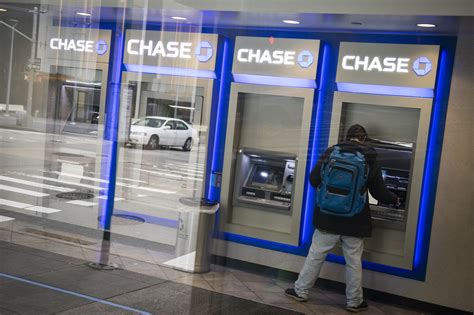
Southwest Airlines CEO Bob Jordan maintains the airline is performing exceptionally well, stating “we’re crushing it,” despite facing considerable customer criticism and financial analyst skepticism over the company’s potential introduction of baggage fees. Jordan addressed concerns about the possible new revenue stream during a recent earnings call, emphasizing the airline’s robust financial health and strategic growth initiatives.
Despite swirling speculation and public disapproval, Southwest Airlines CEO Bob Jordan has asserted the company’s strong performance, declaring the airline is “crushing it.” This statement comes amid heated debate and significant customer apprehension regarding the potential implementation of baggage fees, a move that has sparked controversy and raised questions about the airline’s traditionally customer-centric approach. During the latest earnings call, Jordan sought to reassure investors and the public, highlighting the airline’s overall financial stability and strategic plans for future growth, even as analysts expressed concerns.
“We have a lot of revenue opportunities that we’re working on,” Jordan explained, signaling that the potential baggage fees are only one aspect of a broader strategy to bolster the airline’s financial position. The CEO underscored Southwest’s commitment to exploring various avenues for revenue enhancement, all while seeking to maintain the airline’s competitive edge and brand loyalty. However, the discussion surrounding baggage fees has undeniably cast a shadow over what would otherwise be perceived as a period of strong performance.
The possibility of introducing baggage fees has been met with considerable backlash, particularly from Southwest’s long-standing customer base, which has historically valued the airline for its “Bags Fly Free” policy. This policy has long been a cornerstone of Southwest’s brand identity and a significant differentiator in a highly competitive market. The potential shift away from this established benefit has raised concerns among loyal customers who fear the airline may be abandoning its core values in pursuit of increased revenue.
Analysts have also weighed in on the matter, with many questioning whether the introduction of baggage fees is a necessary or prudent move for Southwest at this juncture. Some analysts have suggested that implementing such fees could alienate customers and damage the airline’s reputation, potentially leading to a decline in bookings and overall market share. The concerns reflect broader industry debates about balancing revenue generation with customer satisfaction and brand integrity.
Jordan addressed these concerns directly, emphasizing that any decision regarding baggage fees would be carefully considered and implemented with customer interests in mind. He reiterated that Southwest remains committed to providing value to its customers and that the airline’s primary focus is on maintaining its position as a leader in the low-cost carrier segment. The CEO’s remarks suggest that Southwest is acutely aware of the potential risks associated with introducing baggage fees and is actively exploring alternative strategies to mitigate any negative impact.
While the debate over baggage fees continues to dominate headlines, Southwest is simultaneously focused on several other key initiatives aimed at driving growth and enhancing operational efficiency. These initiatives include investments in new technology, expansion of its route network, and improvements to the overall customer experience. The airline is also working to optimize its fleet and improve its cost structure to ensure long-term profitability.
“We are committed to providing a great experience for our customers while also delivering strong financial results,” Jordan stated, underscoring the airline’s dual focus on customer satisfaction and shareholder value. This balanced approach reflects Southwest’s broader strategy of prioritizing both short-term gains and long-term sustainability.
The earnings call also provided an opportunity for Southwest to highlight its recent accomplishments and future goals. The airline reported strong financial performance for the quarter, driven by increased passenger demand and effective cost management. Southwest is also benefiting from the ongoing recovery in air travel, as more people are returning to the skies for both business and leisure travel.
Looking ahead, Southwest plans to continue expanding its route network, with a particular focus on adding new destinations and increasing service to underserved markets. The airline is also investing in new technology to improve the customer experience, including enhanced mobile apps and streamlined check-in processes. These investments are aimed at making travel more convenient and enjoyable for Southwest’s customers.
However, the looming decision on baggage fees remains a significant point of contention and a key factor that could influence Southwest’s future success. The airline must carefully weigh the potential benefits of increased revenue against the risk of alienating customers and damaging its brand reputation. The ultimate outcome will depend on Southwest’s ability to strike a balance between financial imperatives and customer expectations.
In the meantime, Bob Jordan’s declaration that Southwest is “crushing it” serves as a reminder of the airline’s overall strength and resilience, even in the face of ongoing challenges. Whether the airline can maintain this momentum in the long term will depend, in part, on how it navigates the complex and sensitive issue of baggage fees. The coming months will be crucial in determining the future direction of Southwest Airlines and its continued success in the highly competitive airline industry.
Deeper Dive into Southwest Airlines’ Financial Performance
Southwest Airlines’ recent financial results showcase a mixed bag of successes and ongoing challenges. While CEO Bob Jordan’s assertion that the company is “crushing it” might be viewed optimistically, a closer examination of the airline’s financials reveals a more nuanced picture. The airline’s revenue has indeed seen a boost, reflecting the broader recovery in the airline industry as travel demand rebounds post-pandemic. However, Southwest, like other airlines, is contending with rising operating costs, including fuel and labor expenses, which can significantly impact profitability.
The airline’s strategy of offering competitive fares while providing a customer-friendly experience has historically set it apart. This model, built on no change fees and the “Bags Fly Free” policy, has fostered strong customer loyalty. However, this approach also puts pressure on revenue generation, especially as operational costs increase. The potential introduction of baggage fees is a direct response to this pressure, aimed at diversifying revenue streams and improving financial performance.
The financial analysts following Southwest closely are scrutinizing the potential impact of these changes. While the added revenue from baggage fees could be substantial, there is a risk of customer backlash, potentially driving travelers to competitors who maintain more customer-friendly policies. The airline’s ability to effectively communicate and justify these changes will be crucial in mitigating any negative impact on its brand reputation and customer loyalty.
Southwest’s financial stability also depends on factors beyond its control, such as fuel prices and economic conditions. Volatile fuel prices can significantly impact operating costs, while economic downturns can reduce travel demand, putting further strain on revenue. The airline’s hedging strategies and cost-cutting measures play a vital role in navigating these external challenges.
Southwest Airlines’ Brand and Customer Loyalty: A Delicate Balance
Southwest Airlines has cultivated a distinct brand identity centered on low fares, friendly service, and customer-centric policies like no change fees and free checked bags. This approach has fostered a strong sense of customer loyalty and has been a key differentiator in the competitive airline industry. The potential introduction of baggage fees, however, poses a significant threat to this brand identity and the loyalty it has cultivated.
The “Bags Fly Free” policy has long been a defining feature of Southwest’s brand. It has attracted customers who value the convenience and cost savings of not having to pay extra for checked luggage. Abandoning this policy could alienate these loyal customers, leading them to consider alternative airlines that offer similar or better value.
Maintaining brand integrity is crucial for Southwest, particularly in an era where customer expectations are constantly evolving. The airline needs to carefully weigh the potential financial benefits of baggage fees against the risk of damaging its reputation and eroding customer loyalty. Transparent communication, thoughtful implementation, and a continued commitment to customer service will be essential in navigating this delicate balance.
Moreover, Southwest’s culture, known for its employee empowerment and customer-first approach, could be impacted if baggage fees are introduced. Employees, accustomed to offering free checked bags as a value proposition, may face challenges in explaining and enforcing new fee structures. Maintaining employee morale and ensuring they remain committed to providing exceptional customer service will be critical during this transition.
Strategic Growth Initiatives Beyond Baggage Fees
While the debate over baggage fees dominates the headlines, Southwest Airlines is simultaneously pursuing several other strategic initiatives aimed at driving growth and enhancing its competitive position. These initiatives include expanding its route network, investing in new technology, and improving operational efficiency.
Expanding its route network allows Southwest to tap into new markets and attract new customers. The airline has been strategically adding new destinations and increasing service to underserved markets, both domestically and internationally. This expansion helps diversify revenue streams and reduces reliance on specific geographic regions.
Investments in new technology are also a key priority for Southwest. The airline is upgrading its IT infrastructure, enhancing its mobile app, and streamlining check-in processes to improve the customer experience. These investments aim to make travel more convenient and enjoyable for Southwest’s customers, enhancing their overall satisfaction and loyalty.
Improving operational efficiency is another critical aspect of Southwest’s growth strategy. The airline is focused on optimizing its fleet, improving its cost structure, and enhancing its operational processes to reduce costs and improve productivity. These efforts are aimed at making Southwest a more efficient and profitable airline, enabling it to compete effectively in the long term.
These strategic initiatives, combined with a careful consideration of its customer-centric values, will determine Southwest’s ability to navigate the challenges ahead and maintain its position as a leader in the low-cost carrier segment. The successful execution of these initiatives will be crucial in offsetting any potential negative impact from the introduction of baggage fees and ensuring the airline’s long-term success.
The Broader Airline Industry Context
Southwest Airlines’ potential introduction of baggage fees comes at a time of significant change and challenge in the broader airline industry. Airlines are grappling with rising operating costs, volatile fuel prices, and evolving customer expectations. The competitive landscape is also intensifying, with new low-cost carriers entering the market and established airlines vying for market share.
In this environment, airlines are constantly seeking new ways to generate revenue and improve profitability. Baggage fees have become a common practice among many airlines, as they provide a significant source of ancillary revenue. However, the decision to introduce baggage fees is not without its risks, as it can alienate customers and damage brand reputation.
Airlines are also investing heavily in new technology to improve the customer experience and enhance operational efficiency. Mobile apps, online check-in, and automated baggage handling systems are becoming increasingly prevalent, as airlines seek to streamline processes and reduce costs.
Sustainability is also a growing concern for the airline industry. Airlines are under pressure to reduce their carbon footprint and adopt more environmentally friendly practices. Investments in fuel-efficient aircraft, alternative fuels, and carbon offset programs are becoming increasingly important.
The airline industry is also facing ongoing labor challenges. Pilot shortages, labor disputes, and rising labor costs are putting pressure on airlines’ bottom lines. Maintaining positive labor relations and attracting and retaining skilled employees are critical for long-term success.
Southwest’s Path Forward: Balancing Financial Needs with Customer Expectations
Southwest Airlines finds itself at a critical juncture, needing to balance its financial needs with its commitment to customer satisfaction. The potential introduction of baggage fees represents a significant departure from its traditional customer-centric approach and could have far-reaching consequences for its brand reputation and customer loyalty.
The airline must carefully consider the potential benefits and risks of baggage fees, taking into account the impact on its customer base and its competitive position. Transparent communication, thoughtful implementation, and a continued commitment to customer service will be essential in mitigating any negative impact.
Southwest must also continue to pursue its other strategic initiatives, including expanding its route network, investing in new technology, and improving operational efficiency. These initiatives are crucial for driving growth and enhancing its competitive position in the long term.
Ultimately, Southwest’s success will depend on its ability to adapt to the changing dynamics of the airline industry while remaining true to its core values. Balancing financial imperatives with customer expectations will be the key to navigating the challenges ahead and maintaining its position as a leader in the low-cost carrier segment. The decisions made in the coming months will shape the future of Southwest Airlines and determine its long-term success in the highly competitive airline industry.
Frequently Asked Questions (FAQ)
1. Why is Southwest Airlines considering introducing baggage fees?
Southwest Airlines is exploring various revenue opportunities, including the potential introduction of baggage fees, to bolster its financial position and address rising operating costs. The airline aims to diversify its revenue streams and improve profitability while maintaining its competitive edge in the airline industry.
2. How would baggage fees impact Southwest Airlines customers?
The introduction of baggage fees could potentially impact customers by adding an additional cost for checking luggage. This could affect the overall value proposition of flying with Southwest, especially for loyal customers who have valued the “Bags Fly Free” policy. The airline’s brand image and customer loyalty may also be affected.
3. What are the potential benefits of introducing baggage fees for Southwest Airlines?
The potential benefits for Southwest Airlines include increased revenue, improved profitability, and a more diversified revenue stream. These benefits could help the airline offset rising operating costs and invest in future growth initiatives.
4. What other strategies is Southwest Airlines pursuing to enhance its financial performance?
Besides considering baggage fees, Southwest Airlines is also focused on expanding its route network, investing in new technology to improve customer experience, and improving operational efficiency to reduce costs and enhance productivity.
5. How is the airline industry as a whole dealing with rising costs and changing customer expectations?
The airline industry is grappling with rising operating costs, volatile fuel prices, and evolving customer expectations. Airlines are seeking new revenue streams, investing in technology, focusing on sustainability, and addressing labor challenges to maintain profitability and competitiveness.
6. Will Southwest Airlines definitely introduce baggage fees?
While Southwest Airlines is considering the possibility, a final decision has not been made. The airline is weighing the potential benefits against the risk of alienating customers and damaging its brand reputation.
7. How is Southwest Airlines responding to concerns about potentially losing customers if it introduces baggage fees?
Southwest Airlines CEO Bob Jordan has emphasized that any decision regarding baggage fees would be carefully considered and implemented with customer interests in mind. He reiterated that Southwest remains committed to providing value to its customers and maintaining its position as a leader in the low-cost carrier segment.
8. What makes Southwest Airlines unique compared to other airlines?
Southwest Airlines has built its brand around low fares, friendly service, and customer-centric policies, such as no change fees and the “Bags Fly Free” policy. This approach has fostered strong customer loyalty and has been a key differentiator in the competitive airline industry.
9. What is Southwest Airlines doing to improve the customer experience?
Southwest Airlines is investing in new technology to enhance its mobile app, streamline check-in processes, and upgrade its IT infrastructure. These investments aim to make travel more convenient and enjoyable for Southwest’s customers, enhancing their overall satisfaction and loyalty.
10. How does the airline’s employee culture play a role in its success?
Southwest Airlines has a unique employee culture that emphasizes empowerment and a customer-first approach. This culture has contributed to the airline’s strong customer service and positive brand reputation. Maintaining this culture will be crucial as the airline considers potential changes, such as the introduction of baggage fees.









